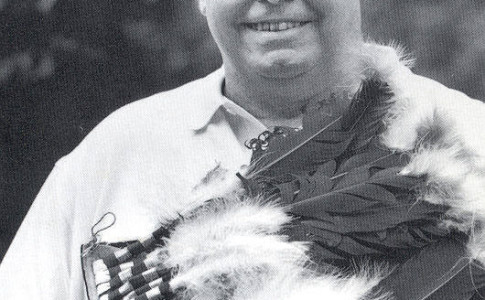Practically every college or university marching band has graduate assistants. But what exactly do they do? Anything and everything!
In a college marching band of 100-plus members and staff, you have to think to yourself: How was the drill completed? Who arranged the music for this particular show? Who deals with the logistical end of things and transports an entire band from point A to point B? How do all of the odds and ends come together? Who’s the brains behind this—if there’s only one, even?
They’re like sasquatch—you can’t see them, but you know they’re there. Mike Phillips, a University of Florida graduate assistant for the Gator Marching Band in Gainesville Fla., says with a chuckle that he isn’t often caught on camera because he’s constantly running around and making sure everything is put in its right place. “Pictures of us tend to be rare, unfortunately,” Phillips says.
Graduate assistants—students at a college or university earning a master’s or doctorate degree—are important assets to almost every college or university marching band in the country. However, they typically stay behind the scenes to make everything run as smoothly as possible. And they’re very good at making it look easy.
Making the Impossible Possible
Graduate assistants have several things going on at once at any given point in time; they have their own lives and educations to worry about, and they are certainly kept busy in their positions within the marching band.
One of the their duties is to help with special projects such as run-out gigs, says Dr. Brad McDavid, director of athletic bands at the University of Washington in Seattle. “They are my right-hand people,” McDavid says.
They also often handle last-minute needs. “[They] are the unsung heroes of college and university band programs everywhere,” says Justin Mertz, marching band director and assistant director of bands at Syracuse (N.Y.) University. “I am just as guilty of this as anyone, but often, professors say to a grad assistant, ‘Hey, I forgot to tell you that I need something impossibly difficult, and I need it in 20 minutes, and it has to be perfect.’”
Mertz takes pride in his graduate assistants for being so good and so qualified that they adequately complete the task every time. Not only that, but they smile when they do it—and, as if that wasn’t enough, they always come back for more, Mertz says. “I try very hard to give them experiences that will translate to their future careers because it is the very least I can do for those who do so much for me.” Mertz says.
At Ohio University in Athens, Ohio, graduate assistants Ken Will and Josh Boyer had the task of organizing the pep band’s trip to Cleveland after their men’s basketball team had qualified for the NCAA Tournament; director Dr. Richard Suk was overseas. They had to select a band of 29 members, collect their information to build a flight manifest, coordinate travel schedules and pep rallies with athletics, and plan a daily itinerary.
Those might be considered usual duties for any graduate assistant, but they are often completed under unusual circumstances. “We had to do it all in the span of about 12 hours from selection to departure,” Will says. “I feel like that could have been a pretty solid reality TV show.”
No matter how crazy his experience, Will regrets absolutely nothing. “I learned more that March than I bargained for when I came back for my master’s, but it was so rewarding to be a part of that experience for my school,” Will says.
General Duties
Up until 2001, McDavid had a full-time assistant on staff to take care of the miscellaneous work in the University of Washington marching band office. Since the position would never be on the university tenure track within UW’s school of music, no one wanted to fill that position.
Instead of trying to find someone every year, he decided to take the responsibilities of that job and spilt it between two graduate assistants.
“Some universities use [graduate assistants] as a glorified gopher and not intimately involved within the program,” McDavid says. “I made sure to design the [positions], so they have a hand in what makes our program so comprehensive and enjoyable.”
McDavid’s graduate assistants, Dan McDonald and Cory Meals, do many things that a faculty member would do at any other university. They help in planning band trips, fundraising and the overall marketing of the athletic department and band.
Along with that, the assistants have the opportunity to completely write a show—drill, music and everything else. “If they’ve written the show, they will run the show as head director and teach the show from start to finish,” McDavid says.
McDavid had been a graduate assistant at Purdue University and Ohio State University, and he developed the graduate assistant positions at University of Washington based on his own experiences. The ultimate goal is the same: to make the assistants very marketable after they finish their degrees.
One common duty across the board for graduate assistants is administration, not only with finances and secretarial work but also with helping to oversee student and undergraduate staff and assist in rehearsal setup and breakdown.
Graduate assistants also have the responsibility to take attendance, rent out instrument lockers, coordinate instrument repairs and organize events like alumni weekend, Phillips says.
While at first glance, it seems like a lot of grunt work, it’s all part of getting the absolute most out of a learning opportunity. Many of the graduate students are pursuing conducting or music education degrees, so their experiences with the band prove invaluable for their future careers. And with that mindset comes a special understanding between graduate assistant and director.
“Dr. Suk always holds the best interests of the student as priority number one,” Will says. “He allows [the graduate assistants] to act as a true teaching assistant and allows space to be creative, take chances and to grow as educators.”
Syracuse University recently did a non-competitive exhibition at a local high school that they had never performed at before. Mertz trusted his graduate assistants to supervise loading seven busses with personnel and equipment while he met with the hosts of the show. Nothing and no one was left behind, and the graduate assistants helped the bus drivers get all seven busses to the exhibition on time.
“It was quite a sight to see my own band showing up!” Mertz says.
Personal Balance
As Mertz might agree, it’s a relief to trust and rely on graduate assistants that get the job done and done right every time. Perhaps the reason why graduate assistants make sure to prove themselves trustworthy is because some were in the directors’ shoes before.
Will was the assistant director of bands at Lakewood (Ohio) High School prior to going back to school. “There was definitely an adjustment period, but the experience that I gained from teaching at Lakewood prepared me well to make that transition,” Will says.
The common theme for balancing your personal and professional life as a graduate assistant? Compartmentalize, compartmentalize, compartmentalize.
“First and foremost, we are students working on degrees, and nobody is here getting a degree in marching band,” Phillips says. “We make the choice to invest our energy with the program in the short time we are here.”
Joshua Gall, a graduate assistant for the University of Florida, is a firm believer in planning ahead with a schedule that is full almost every day. “If I plan properly, I can sometimes get a little free or personal time on Sunday, maybe,” he says.
Will agrees that you mustn’t forget about yourself. “The ability to switch gears from teacher to student is tough enough, but you can’t forget about your own identity, either,” Will says. “I’ve had to keep reminding myself, ‘When you can afford to escape, do it. Don’t just work hard; work smart.’”
While pulling at least 20 hours a week with a stipend to show for it, having the role of graduate assistant has proved to be nothing short of rewarding. “You definitely have to love what you do and the people you’re doing it with,” Will says.
Directors certainly appreciate the hard work put in by graduate assistants, knowing that they are also full-time students. “There is no way we could operate smoothly or efficiently without them, and we wouldn’t look or sound as good without their work in rehearsals,” Mertz says.
McDavid concurs. “I think creating the assistantships has been one of the smartest decisions of my career,” McDavid says. “Not only does it make us better as a band, but I have certainly learned a lot from them.”
About the Author
Katie Finlon is a journalism major at Northern Illinois University (NIU). She has participated in color guard within NIU’s Huskie Marching Band and has also marched snare in its drum line. During her time at NIU, she has been awarded “Rookie of the Year” for guard and “Most Improved Member” for drum line. Katie is also a freelance entertainment writer for NIU’s newspaper, the “Northern Star.”


